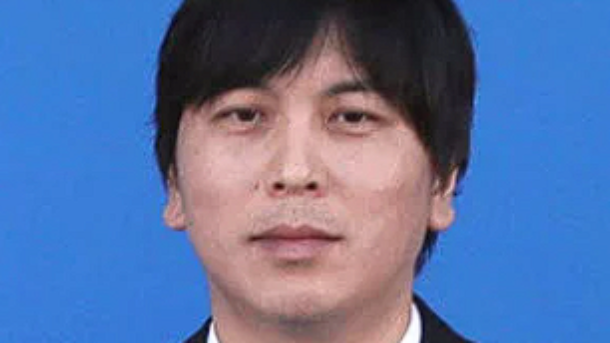In a twist that sounds like it was ripped straight from a plot of a sports drama, the world of Major League Baseball is currently abuzz with a scandal involving Shohei Ohtani’s interpreter, Ippei Mizuhara. Known for his dual role as Ohtani’s day-to-day manager and translator, Mizuhara finds himself the protagonist of a federal fraud investigation, with accusations so dramatic they might as well be scripted for the silver screen.
According to the details laid out in a voluminous 37-page complaint by federal prosecutors, Mizuhara stands accused of engaging in bank fraud on a grand scale. Allegedly, he pilfered more than $16 million from Ohtani, the two-way Japanese baseball sensation, for activities as divergent as settling colossal gambling debts and amassing an impressive collection of baseball cards. This financial misconduct has thrust the previously behind-the-scenes figure into an unwelcome spotlight.
The method behind Mizuhara’s madness appears to be straightforward yet audacious. Prosecutors claim that he dipped into Ohtani’s bank account to procure around 1,000 baseball cards from popular online marketplaces such as eBay and Whatnot. Operating under the pseudonym “Jay Min,” Mizuhara didn’t exactly penny-pinch; the average spend per card stood around $325. These weren’t casual purchases meant for a novice collector’s album. On the contrary, some shipments of these cards were directed to be left under the care of Dodgers clubhouses, a strategic move that allowed him discreet access.
Mizuhara’s vehicular treasure trove included cards featuring legendary players like Juan Soto and Yogi Berra, with the collection extending even to cards of Ohtani himself. The cards were found ensconced in protective cases, a testament to their intended longevity and value in the eyes of collectors. This discovery has necessitated a full inventory by authorities to assess the extent of the purchases, which Mizuhara supposedly intended to offload in future profit-skimming endeavors.
Peeling back the layers of Mizuhara’s financial double life unveils a staggering penchant for high-stakes gambling. Investigations highlighted approximately 19,000 bets made by Mizuhara, culminating in a net gambling loss of $40.7 million between the tail end of 2021 and early this year. Notably, these bets steered clear of Major League Baseball games, perhaps a nod to maintaining a facade of professional integrity in his baseball-related role.
The unraveling of Mizuhara’s schemes began innocently enough in 2018. Arriving in the U.S., a linguistically challenged Ohtani needed assistance setting up a bank account, a task Mizuhara facilitated. However, this seemingly benign act morphed into a gateway for financial malfeasance. Despite never receiving authorization from Ohtani to manage his finances, Mizuhara leveraged his positional trust to siphon funds for his personal use, even going as far as impersonating Ohtani to authorize wire transfers to his gambling associates.
The response from the U.S. Attorney’s Office has been one of unequivocal condemnation. U.S. Attorney Martin Estrada highlighted the astonishing scope of Mizuhara’s fraudulent acts, painting a picture of a man who grossly abused his position of trust. On the flip side, Ohtani — cooperating fully with the authorities — has distanced himself from the debacle, denying any knowledge of or consent to the illicit transactions carried out by Mizuhara.
Looking ahead, the interpreter-turned-alleged embezzler is set to appear in a downtown Los Angeles courtroom. Here, Mizuhara will have to face the music, answering for the sophisticated web of deceit and misappropriation he’s accused of weaving. As this scandal continues to unfold, it serves as a stark reminder of the complexities and potential pitfalls of managing sky-high earnings in the high-stakes world of professional sports. Whether this episode will lead to a profound overhaul of how athletes manage their mammoth wealth remains to be watched carefully.




